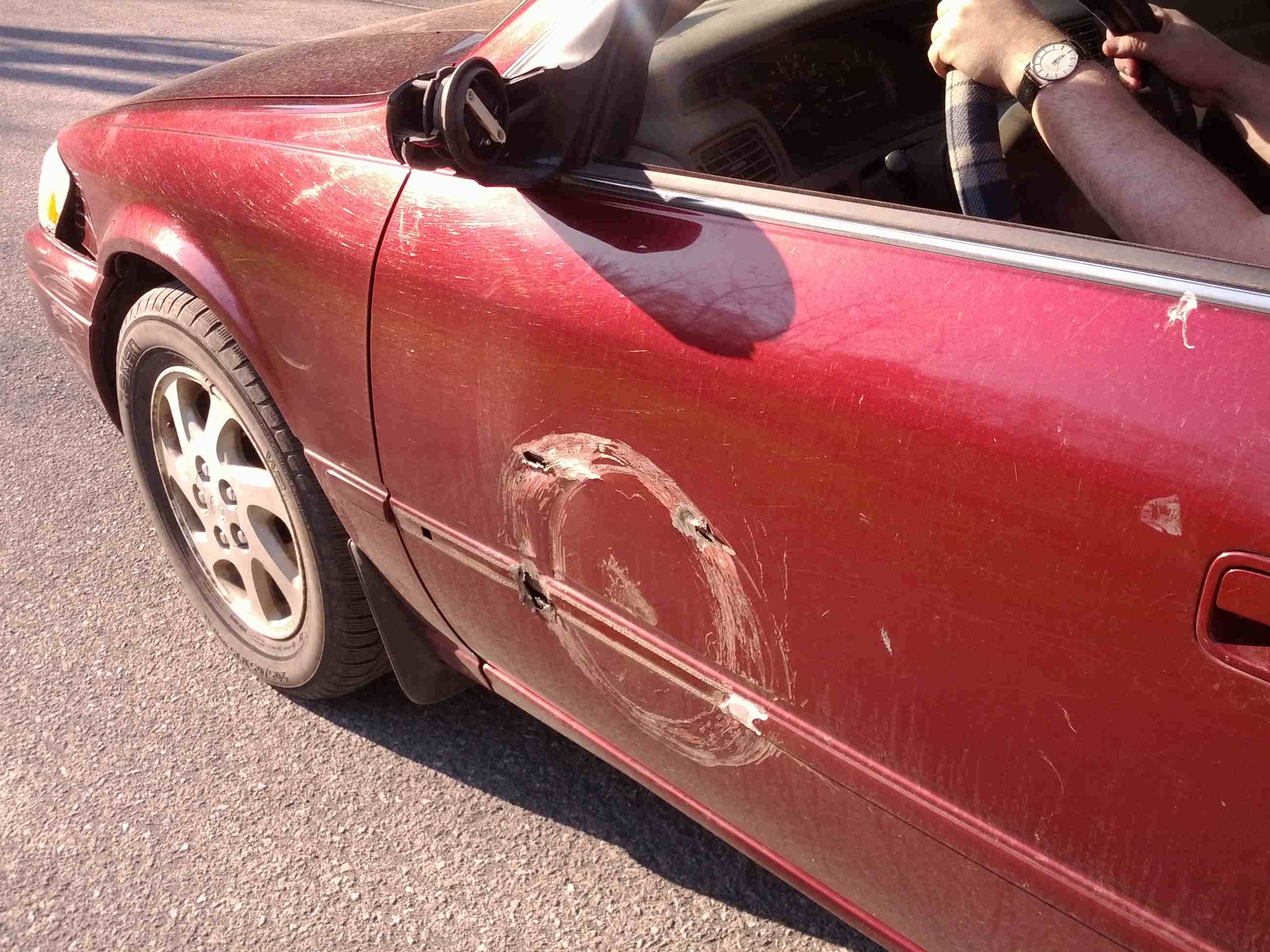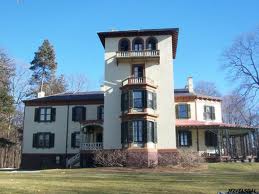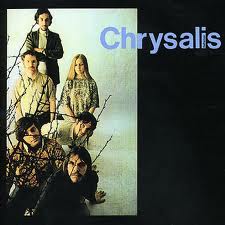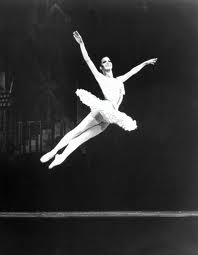At the midnight showing of the movie “The Dark Knight Rises” in Aurora, Colorado, Jon Blunk heard gunshots being fired in the theater. Blunk, a military veteran, immediately reacted by pushing his girlfriend, Jansen Young, under a seat to protect her. While he was doing that, he was hit by a bullet and fatally wounded. Young was not injured.
the midnight showing of the movie “The Dark Knight Rises” in Aurora, Colorado, Jon Blunk heard gunshots being fired in the theater. Blunk, a military veteran, immediately reacted by pushing his girlfriend, Jansen Young, under a seat to protect her. While he was doing that, he was hit by a bullet and fatally wounded. Young was not injured.
At the same time, Matt McQuinn heard shots. He placed himself in front of his girlfriend, Samantha Yowler. He was hit by a bullet and fatally wounded. Yowler was not injured. 
Appalled as I am by the madman who committed these crimes, and by the mad industry that supplied him with his tools of death, I must pause for a moment to express my admiration of Jon Blunk and Matt McQuinn. Their spontaneous acts of heroism show me that there are still men in this culture of mine who know what to do in an emergency. I can only hope that in the same situation I would have acted in the same way.
Every time we have a mass murder in the United States, the same debates begin to rage again about gun control. Opponents of gun control inevitably cite the “Second Amendment,” meaning the second amendment to the U.S. Constitution appended as part of the “Bill of Rights.” Scholars point out that the Constitution is primarily a document designed to protect property rights. The rights of individuals are contained in those ten amendments.
Here is the exact text of the Second Amendment:
Amendment II
A well regulated Militia, being necessary to the security of a free State, the right of the people to keep and bear Arms, shall not be infringed.
Like every human endeavor, this isn’t perfectly done. If I had been the editor, even sticking with the formal language of the times, I would have written:
“The right of the people to keep and bear Arms, as part of the well regulated Militia necessary to the security of a free State, shall not be infringed.”
In other words, the intention of this amendment–still debated by constitutional scholars, but most of them agree with me–was to ensure that all citizens could take part in the defense of their country. This contrasts with the way militaries were run and staffed by the elite of other countries.
I won’t waste a lot of space discussing why I think the Second Amendment is no excuse for allowing a mentally ill person to purchase 6,000 bullets in a short period of time. Either you’re with me on this one or you’re not.
But let’s put human faces on this debate. The faces of twelve innocent victims. Two of them died as heroes. I will honor them as long as I live, as we all should.
Much has been made recently of the way the Romney campaign is able to raise much more money than the Obama campaign because of contributions from big donors. But one simple trick will enable them to outraise Romney and to strike a major blow for political dependence.
Romney’s campaign is accepting big donations from rich corporations and individuals who stand to gain something from favorable attention. But Obama has something to sell that will in itself assure that favorable attention: naming rights!
Companies have spent tens of millions of dollars to put their names on locations, so that, for example, every time a sporting event takes place at the Staples Center in Los Angeles, people are reminded that the Staples chain of stationery and office supply stores exists. But there’s no inherent connection between the company and the locale it sponsors.
Staples would get a lot more value for its money if it had naming rights to the Department of Education. That way, every time this important function of the federal government was mentioned, it would include a mention of an important supplier of materials used in schools.
Likewise, a huge new arena being built in Brooklyn will be known as the Barclays Center. People going to see Barbra Streisand or the Harlem Globetrotters may feel a moment of gratitude to this huge international bank for making the facility possible. But how much more, and more appropriate, attention Barclays would get if it were mentioned as sponsor of the Barclays Department of the Treasury!
Other obvious candidates suggest themselves immediately: the Halliburton Department of Defense, UnitedHealthcare Medicare, Monsanto Dept. of Agriculture, BP Department of Environmental Conservation, Citicorp Social Security. The possibilities are endless.
It’s important to assure that the sponsoring companies will not necessarily have any influence over the operations of the departments they sponsor.
The official “A-Z Index of U.S. Government Departments and Agencies” lists 35 departments and agencies under the letter A alone. I’ll have to get someone at the Access Board, the very first one listed, to count all of them through the whole alphabet.
Promising to name only the largest departments after donors should easily raise enough money to put Obama over the top. After the election, naming rights to all the remaining agencies could be auctioned off, with the proceeds going towards reduction of the National Debt.
But, you say, what happens if Romney wins the election anyway? Well, that’s already arranged. It will be the Bain Capital Presidency.
The phone rings. It’s 2 A.M.
It’s the answering service.
A woman is on the line.
She left him three months ago.
Now he calls her all the time.
Tells her what she has to do.
One day she brought him their son
straight from the playground.
He complained the boy was dirty.
Told the mediator she was
not taking care of him.
He doesn’t want to pay. He curses.
He promises she cannot win this.
What can she do?
The phone rings. It’s 10 P.M.
It’s the answering service.
A woman is on the line.
She saw him again outside,
looking in the window.
She called the cops. She has an order.
The doors all locked. They did not come.
Her friends won’t visit. They’re afraid.
She won’t leave. It’s her fucking house!
The cops arrived two hours later.
They were sorry. Someone died.
She showed them her longest scars and
she played them some messages.
She won’t go to court again.
The judge got angry. She has no more
money for a lawyer.
What can she do?
Can I help her?
The phone rings. It’s 3 A.M.
It’s the answering service.
An emergency room call.
I meet my partner. She looks beat,
all gray, and blinking like a frog.
We go to meet our latest victim.
She is fat. Her face is wet.
She tells the cops she was asleep.
The window crashed and he was on her.
She tried to fight. He hit her hard.
The sun is rising on her cheek.
I hold her hand, then my partner’s
as they cry. I try not to.
The phone rings. It’s 2 A.M.
It’s the answering service.
Someone at the sheriff’s office.
I meet my partner. She looks angry.
She has heard part of the story.
I hear, she met him in Mobile.
He was handsome, nice clothes, suit.
He had money, took her dancing.
Didn’t even try to kiss her.
She was nineteen. Three weeks later
he sent her an airplane ticket.
Married her.
Didn’t beat her for a month.
Then, she didn’t fold the clothes right,
supper late, one night she went out,
didn’t answer when he called.
He looked at the phone bill. Who’s that?
Some old Alabama boyfriend?
Don’t make calls when I’m not here!
That night he hit her, broke her cheek, then
took her to the hospital and
went out drinking, told her she should
take a cab home.
The phone rings. It’s 4 A.M.
It’s the answering service.
She is at the hospital.
I meet my partner. The room’s full
of doctors, cops, and mostly nurses
because she’s one of them and they
all love her.
Second marriage, nine months old.
Threatened her before. This is
the first time he has ever hit her.
It will be the last.
Her face is purple.
She won’t have to go to court.
The cops have everything. They have him.
She never wants to see him again.
The phone rings. It’s 3 P.M.
It’s the office.
The victim that we saw last week
went home. She’s dead.
The funeral is tomorrow.
The phone rings.
I wrote this poem as a result of my experiences for 19 years as a volunteer for the Ulster County Crime Victims Assistance Program. While the program helps victims of all kinds of crime, the volunteers respond to a hot line which serves victims of rape and domestic violence. Every two months, two volunteers go on call during the hours when the office isn’t open, 5 p.m. to 9 a.m. and all weekend. We went mostly to hospitals and police stations.
The hospital calls often occurred when rape victims were brought to the S.A.N.E. (Sexual Assault Nurse Examination) Unit. The S.A.N.E. procedures were originated by a group of hospital nurses in Tulsa, Oklahoma in 1991. At that time, the District Attorney of Ulster County was a man named Frank Kavanaugh. He read about S.A.N.E. in a law enforcement magazine and decided that Ulster County had to have that program as soon as possible. Nurses from Ulster County went to Tulsa for training, and the Ulster County program began soon afterwards, the second one on the U.S. The program is now very widespread and provides humane treatment for rape victims along with useful evidence for prosecutions.
Since very strict confidentiality prevails in the CVAP, I’ve never shared any of my experiences as a volunteer without thoroughly disguising any potentially identifying details. That is true of the poem, which changes some details and uses composite characters. But it’s as true to my experience as I could make it.
I wrote the poem in 2008 at the beginning of a poetry workshop run by Sharon Olds at Omega Institute in Rhinebeck. It was a response to a writing prompt Olds gave, and I was thinking only of that, and of my experiences, when I wrote it. We all read our poems after a lunch break, and it was only then that I realized that the other nine people in the workshop, all women, were hanging on my words to find out who I was. I felt a perceptible relaxation go around the room as I read, and we all got along fine after that.
More than five years after I left WDST, I got a call from the program director, Richard Fusco. He was someone I had worked with, and while we weren’t exactly best buddies—he was the guy who yelled at me for playing music by Steve Reich, a few years before the owner asked me to interview Reich—I was willing to talk to him.
Richard outlined for me a grand project that the owner and staff of WDST were about to start. It was to be called Radio Woodstock, and it was going to be an Internet project with several simultaneous streams of programming coming from Woodstock and promoted to the outside world. Among the people he mentioned as having agreed to become part of the project were Richie Havens, one of the best-known musicians ever to live in Woodstock, and Randall Craig Fleischer, then and still music director of the Hudson Valley Philharmonic. I was particularly impressed that Fleisher had agreed to work for them, since I have great respect for the guy. He’s a superb musician.
I had a few questions, mostly about the hours and working conditions. Then I asked what the job was going to pay. “Not very much at first,” Richard told me, “but people who start out with Radio Woodstock are going to have a stake in it and eventually they will make a lot of money.”
“That’s interesting,” I replied, “but where is the money going to come from?”
Richard told me that several large music industry companies had already committed to investing millions of dollars in Radio Woodstock to get it off the ground. I said I was impressed, but I still didn’t understand where the revenue stream was going to come from. “You can’t run advertising as part of the programming,” I said. “There are already so many Internet radio stations that as soon as ads come on people will switch to something else.”
Richard agreed. “We’ll run banner ads on the site,” he told me. That won’t raise very much, I said. He agreed with that, too, but said it was a start. “We’ll also sell the music we play,” he said. “People will be able to order CDs right on the website.” That sounded like a trivial source of income as well. When I asked where else the money was going to come from, Richard hesitated and couldn’t come up with a convincing answer.
For that reason, I decided not to get involved in Radio Woodstock. I just couldn’t understand where the money to support it was going to come from. I guess nobody else did, either. Radio Woodstock ran through most of the millions of dollars in three years, and then had to shut down most of its operations. Nobody got rich. (It still runs three audio streams, one of which is the current WDST broadcast.)
When I think back on this whole episode, I think it reflects a great deal about the difficulties of making money on Internet enterprises that don’t offer physical goods for sale. Amazon makes a fortune, but Facebook, despite its billion users, seems to be struggling. (I believe Facebook makes most of its income peddling its users’ information to advertisers, which is why I don’t use it.)
In fact, it seems to me that Radio Woodstock was a perfect set-up for a scam like the one in Mel Brooks’s “The Producers.” Get a lot of investment, use only some of it, and then tell all the investors that all the money has been lost. Perhaps that was the story of Radio Woodstock. But, being an honest person myself, I prefer to believe that the money was lost through honest stupidity.
 My former girlfriend, the late Anne Dinger, was a superb cook. I used to embarrass her by calling her the best cook I’d ever eaten. She gave me one piece of bad cooking advice, though, which led to my discovery of Lodge Logic.
My former girlfriend, the late Anne Dinger, was a superb cook. I used to embarrass her by calling her the best cook I’d ever eaten. She gave me one piece of bad cooking advice, though, which led to my discovery of Lodge Logic.
Anne was fond of cast iron cookware, for good reasons. So am I, now that I’ve had the experience. Anne taught me to use a cast iron skillet, and she told me that it had to be protected from rust. But her preferred method of drying her skillet was wiping it down and then putting it on the stove on high heat until any remaining water had evaporated.
One sad day, about a year ago, I used this method, as I had for years. But then I left the house on an errand and forgot to turn off the heat. By the time I got back, the skillet had oxidized beyond repair. I’m lucky I didn’t burn the house down.
I’ve seen old cast iron cookware at yard sales and flea markets many times, but usually at high prices and often in rather rusty condition. Just for the hell of it, I decided to try my usual last resort for specialty items and checked out Amazon. Sure enough, they had a 12″ cast iron skillet made by a company called Lodge Logic, offered at only $20.97. Because I’m an Amazon Prime subscriber, I didn’t even have to pay for shipping.
That’s a good thing because, when the thing arrived, it weighed eight pounds! It was thicker and heavier than the old one I had ruined. And, to my surprise, it wasn’t made in China. It was made in the U.S.!
I’ve now been using this skillet for about six months. There’s one thing about it I don’t love. It’s heavy! My right shoulder isn’t 100%, so sometimes I have to pick the thing up left-handed. And when it’s very hot, even with two hot pads it’s difficult to manipulate. If I want to pour some liquid out of it, I have a really hard time. This weight, though, is part of the skillet’s quality, so I really can’t complain about it.
In every other respect, though, it’s a dream to use. Its surface is mottled, rather than smooth like my old skillet, which results in much less sticking to it. Anything that does stick is easily scrubbed off. It cooks very, very well, thoroughly and quickly. I’ve become rather fond of a brand of frozen fish burgers (Seafood Doctor swai burgers) and another of turkey burgers (Bubba), and I make them rather often for dinner. They cook more thoroughly on the Lodge skillet than they did on my antique, and in a bit less time.
Anne to the contrary, Lodge’s instructions say that the pan should be cleaned without soap, using a stiff brush (I use a copper scrubber), then dried and re-oiled. Emeril’s cooking oil spray works great, although–regrettable waste–I rub it down with a paper towel. Just one.
I was so curious about this company that I looked it up. Lodge Cast Iron is located in the small town of South Pittsburg, Tennessee, where it has been making cookware since 1896. Although the company imports enamel coated cast iron cookware from China, it makes everything else at its factory in South Pittsburg. The company even boasts about, and details, its ecological responsibility.
Recently, while visiting my house on Cape Cod, I discovered that a small non-stick frying pan had been worn bald by summer tenants. I decided to replace it with an iron pan. I went to the Cape Cod Flea Market in Wellfleet and found someone who sold antique iron cookware, and I bought a small pan from him although it needed some rehabilitation. Later the same day I was at my favorite local hardware store, Conwell Hardware in Provincetown, and I found the same size brand new Lodge pan, at the same price I’d paid for the antique. Someday I’ll do the work the old pan needs, but for that moment I thought wotthehell and I bought the Lodge pan. It’s probably better.
I’m not a great maker of practical jokes, although I appreciate a good one (my definition: maximum surprise, minimal harm). Recently, I heard from my old friend Amy Hazelrigg, which reminded me of one of my two best practical jokes ever.
Imagine the scene: it was a balmy summer evening in Bloomington, Indiana, where I was attending summer school. I was having a picnic with Amy in the yard outside the house I was renting with my violinist uncle Lenny and two of his friends. They were all doing graduate studies. I was picking up a few extra credits before going home to Brooklyn College. Amy and her family lived right around the corner from us. They were very musical people and had become friends of my uncle’s.
Earlier that week, I had managed to get hold of a very obscure 78 rpm recording of Beethoven’s “Pastorale” Symphony, made in Germany in the late 1920s by the composer-conductor Hans Pfitzner and the Berlin State Opera Orchestra. (It’s now on CD.) My friend Harry Warner had wanted to hear this recording, so I had transferred it to open reel tape for him. I hadn’t sent the tape off yet, and the music seemed ideal for a summer picnic, so I had brought the tape recorder and an extension cord outside and was playing the tape as Amy and I ate sandwiches.
“It’s so clear this evening,” Amy said, “and it’s so quiet here. I wonder if you could hear this music up at Prof. White’s house. He’d probably be able to recognize the recording!” The house was two blocks up our street.
John Reeves White, whose contemporary music class I was auditing, was indeed a formidable musicologist. But there was nothing stiff or formal about him. One day, in his class, he gave us a talk about the Soviet musical system with particular emphasis on “Socialist Realism,” that vague term which the Soviet musical establishment used to contrast with the decadent “formalism” of the West. About 2/3 of the class members were nuns, in habits, all accumulating credits to renew their teaching licenses around the state. White told us he would play for us the winner of the 1951 Stalin Prize in Music, the “Heroic Ballad” by Arno Babajanian. It was a ludicrously poor, splashy piece of movie music, one of those “so bad it’s good” things. He let it play until finally one of the nuns started laughing, which released the rest of the class to collapse in laughter. That was typical of him. (Incidentally, the piece was apparently written as a cynical attempt to get in good favor with the Soviet authorities. The other works of Babajanian I’ve heard are much better music.)
I waited about ten minutes. Then I excused myself to go to the bathroom, went into the house, and called White. He didn’t know me well but “I’m Lenny Felberg’s nephew” identified me quickly. He also knew the Hazelriggs. I told him what Amy had said. He laughed and said he’d be right over.
I went back outside and sat down. About five minutes later, we heard a booming, “Boy, that’s really old!” It was Prof. White, sticking his head over the fence. Amy was startled. White played it like a professional comedian, pretending to figure out each detail as he was listening. “Listen to those horns. They have to be German. But the strings don’t sound good enough to be the Berlin Philharmonic. Must be the State Opera Orchestra.” Then he “figured out” the age of the recording, and finally, from interpretive details, the conductor. Amy was properly amazed. I didn’t confess to the setup until about a week later.
White, incidentally, left Indiana U. to become the successor to Noah Greenberg as music director of the New York Pro Musica Antiqua. He stayed in New York, taught at Hunter College, and died regrettably young, at 60, from a heart attack.
My other best practical joke is more quickly summarized. It was an April Fool’s joke, only last year (2011). I had gone to a poetry reading at the Howland Cultural Center in Beacon, New York, where one of the two featured readers was a fine poet named Barbara Adams. I had heard Barbara read several times before, and I had one of her books of poems. At this Calling All Poets Series, the featured poets read first, with the open mic following. When my turn came, I got up and told the audience that I had a brand new poem I had just written and I thought it was the best one I’d ever written. Then I read one of Barbara’s poems, from a copy I had typed out. When I finished, I heard Barbara’s stricken voice saying, “Leslie!” At that point, of course, I had to confess. “April Fool’s, everyone. That was one of Barbara’s poems, not mine.” She’s still talking about it. And, obviously, so am I.
The house on Orchard Lane was for sale, and Anne cooperated graciously with the realtor who was handling the property in arranging showings. When it finally sold, the realtor promised to find us a good place to rent, one with good living quarters and enough space to run my business. The first time she took us up to Stoll Road, in Saugerties, I was intimidated by the curvy, uphill road, which I thought would be hard to drive in snow. It was, and eventually I became accustomed to the two or three days every winter when I was stuck in the house.
But the house itself was ideal. It was roomy enough for both Anne’s and my grand pianos (she put hers in the upstairs apartment). And the basement, the famous basement where the “Basement Tapes” were recorded, had more than enough space for my business needs. Lots more. Also, I learned that after the Band members had left the house, it had been rented by a guitar maker, who had used the basement as his workshop. (I used his worktable as a packing table for years.) This house wants to have music in it, I thought.
The availability of all that space encouraged me to expand my LP stock greatly, and eventually it even filled the garage. I had wonderful times there, the first few years. There were frequent parties with music. I once hosted a house concert of Indian music. I got a lot of work done and met friendly neighbors, among whom I remember most the loony Marion Gold and his caviar and the tall, beautiful cellist Ann Sheldon who played electric music with rock groups and died in a puzzling car crash. My neighbor and friend David turned sour and became impossible, but his wife Geraldine Barton, now remarried, remains one of my closest friends.
My relationship with my landlord at Big Pink wasn’t comfortable. Michael, a bass player, was one of the most unpleasant people I’ve met, and many of my phone conversations with him ended with one of us hanging up on the other. (His wife Elizabeth was usually more reasonable.)
Living in the house for 21 years, I was able to see how little maintenance Michael was willing to do on it. When something needed painting, Michael told me he would pay for the paint. Only. So when he decided to sell the house, although I was in a position to buy it, I decided not to. (He first offered it at a high premium price because it was Big Pink, but got no takers. Apparently nobody wants a house as a souvenir.) It would have taken at least $10,000 in repairs. So I bought another house three miles away, and said goodbye to Big Pink with some regret. I’ve never been back.

It happened very quickly. I must have felt the impact, but I was aware only of the very loud noise from the side of my car. I apparently hit the brakes very quickly, and the driver of the truck must also have veered quickly back into his lane, because there was no further damage, only that initial impact.
I was driving south on the New York Thruway, at 8:30 in the morning, on Tuesday, April 10, ready to listen to The Writer’s Almanac in a few minutes. My wife was drowsing in the passenger seat. I was on my way to teach my class at the Center for Lifetime Study, which meets at Locust Grove, south of Poughkeepsie, about an hour from my home in Woodstock. As usual, I was driving in the right lane, at just about the speed limit (65 mph), with the speed set on cruise control. A truck pulled out of the passing lane and hit my car. The impact sheared off the driver’s side-view mirror and left a large circular gouge in the driver’s door. Obviously I was hit by the truck’s wheel.
I pulled immediately into the breakdown lane, as I did so memorizing the truck’s license plate number, which I wrote down as soon as the car stopped moving. The truck pulled over ahead of me. The driver got out of his truck and walked back to see the damage. His apology was, “I didn’t see you. You were in my blind spot.” He called the police immediately on his cell phone, then asked if I was all right. Then he said something very interesting: “Gee, people are usually a lot more upset.”
The police car arrived in about 15 minutes and took down information, then told me I’d have to wait for the report to come back from headquarters. That took another 45 minutes. Meanwhile, the policeman told me he had issued a citation to the truck driver and that I would have no problems with proving his responsibility.
I now have a cell phone of my own, and I had the cell phone number of my class manager programmed into it. I called him and told him about the accident, assured him that nobody had been hurt, and promised to get there as soon as I could. When I finally arrived, the class had only 15 minutes left to go. The students were sitting quietly, listening to a Mozart Piano Concerto, which ended just as Tara and I walked in.
 Locust Grove was the home of Samuel F.B. Morse, a very attractive site, as one would expect. Morse was a prominent painter who became wealthy through his development of the telegraph and the “Morse code.” CLS is a volunteer program for senior citizens. I was tapped to teach there as a result of pre-concert talks I gave for the Hudson Valley Philharmonic, and my music classes have been very popular there. This semester I am “teaching” a series I call “Mornings with the Great Pianists,” in which I introduce videos of great pianists in performance. It’s a VJ series rather than real teaching, but more than 70 people signed up for it.
Locust Grove was the home of Samuel F.B. Morse, a very attractive site, as one would expect. Morse was a prominent painter who became wealthy through his development of the telegraph and the “Morse code.” CLS is a volunteer program for senior citizens. I was tapped to teach there as a result of pre-concert talks I gave for the Hudson Valley Philharmonic, and my music classes have been very popular there. This semester I am “teaching” a series I call “Mornings with the Great Pianists,” in which I introduce videos of great pianists in performance. It’s a VJ series rather than real teaching, but more than 70 people signed up for it.
This accident has caused plenty of trouble for me. I don’t feel comfortable driving the car without a side-view mirror, so I’ve been using Tara’s car, which is even older than mine. A couple of times her car has been in use otherwise and I’ve had to drive my car on short trips. My insurance agency, which I like very much, took care of the contact with the truck’s insurance agency. They have not acted promptly. Apparently the driver is now claiming that I “cut him off,” an explanation which isn’t likely to hold up after the agency reads the police report. But it’s eight days as I write and I still don’t have my mirror, which I can’t replace until the truck’s agency tells my body shop where to get the replacement mirror. And I won’t have the door repaired for another three weeks. Filling out forms and spending time on the phone have wasted time I could have been using for things I prefer, like writing this blog.
Still, my prevailing attitude about this whole incident is gratitude. As I think about the accident, it seems a small miracle that Tara and I weren’t injured at all. I suspect that most incidents when a large truck hits a passenger car result in more serious damage to the car and its passengers. The impact didn’t even throw me severely off course. My car was pushed partway into the breakdown lane, but not far enough to hit the guard rail, which would probably have caused me to lose control. If things had gone otherwise, we could have been crushed between the truck and the guard rail. We could have been killed. Instead I have a car with a damaged door.
I’m curious about something. I have been doing these classes at CLS for twenty years, and I’ve never missed a class. Once or twice, I’ve been late due to traffic jams, but never by more than a few minutes. During all these years, I never had a cell phone, which I acquired only recently. The week before the accident, at the first class session, I got the cell phone number of Bill Barbash, the class manager, and programmed it into my phone. So I was able to call him within minutes of the accident, before the class was scheduled to begin, and tell him what had happened. But here’s the question: Did I arrange for this emergency call just in time? Or did I somehow clear a path for the accident to happen?
It’s not often I run into one of the world’s greatest ballerinas in a parking lot and she calls me by name. But there is one such creature, and she figures prominently in what I call my “bullshit resume.” I danced with her!
I came up with the concept of the bullshit resume years ago, reading the potted biographies of musicians on concert programs. The bullshit resume item isn’t a lie. Pianist X has performed at Carnegie Hall, for example. But that credit can cover a wide variety of events, from giving a solo recital in the Stern Auditorium (the main hall at Carnegie) to hiring Weill Recital Hall (a much smaller theater). “Performed at Carnegie Hall” sounds as thought it indicates a high degree of success. But it doesn’t necessarily. I could play a recital at Weill myself, if I had the money to hire the place.
One often sees something like “has sung at Carnegie Hall” on a singer’s resume. Sure. Many choruses perform there every year, and all of those people sing at Carnegie Hall.
My mother performed at Carnegie Hall, as a soloist. She played the Grieg Piano Concerto with the All-City High School Orchestra, at Carnegie Hall, in front of a packed house (mostly, one supposes, friends and relatives of the kids in the orchestra). The conductor on that occasion was Jean Morel, a prominent conductor and conducting teacher. A couple of decades later, my mother and I went backstage to meet maestro Morel after he conducted a performance at the Metropolitan Opera. “You won’t remember me,” my mother said, “but I played the Grieg Concerto with you years ago.” “Of course I do,” Morel replied. “You’re Shirley Felberg” (my mother’s maiden name). But she never used the Carnegie Hall credit on her resume.
I once played two-thirds of a Beethoven Piano Sonata at the Brooklyn Academy of Music, another apparently prestigious gig. I was actually the final–and therefore presumably most accomplished–performer on the annual recital of students of the Brooklyn Piano Teachers Guild, for which they hired the small upstairs hall at BAM. There were about 400 people in the audience, and I was nervous, but I did OK. I remember mostly that the piano was a huge old Steinway with a wonderful sound and almost no resistance left in the key action, which made it very difficult to play.
So, there’s one item in my personal bullshit resume. I played Beethoven at the Brooklyn Academy of Music. True, but essentially false. Bullshit.
Here are some other elements in my bullshit resume. My favorite musical one is not the BAM gig but that I sang as a paid soloist with a professional symphony orchestra. True, but false. I was narrated a performance of “Tubby the Tuba” with the Hudson Valley Philharmonic at a children’s concert. Tubby has a little song, and I sang it. I was even in tune, as the tape proved. (I also narrated “The Young Person’s Guide to the Orchestra” at that same concert, which was considerably more difficult. If I hadn’t been able to read music I would have had a terrible time.)
As a bullshit poet, I can claim to be a student of Sharon Olds, Marie Howe, Mark Doty, Patricia Smith, and Billy Collins. The Olds credit is closest to the truth, since I was in two workshops of hers at Omega Institute, one of them five days, the other three. Enrollment was limited to ten people and we were chosen by submission. (I was accepted as an alternate, but someone couldn’t make it.) Howe, Doty, Smith and Collins were all involved as teachers in Omega’s “Celebration of Poetry” last summer. That event, though, had open enrollment, and although it turned out to be surprisingly worthwhile there were 91 of us. There’s a chance Olds might recognize my name, but none of the others would.
Incidentally, I have also read my work at the Dodge Poetry Festival, the largest poetry event in all of North America. Yes, they have an open mic.
My favorite item on my bullshit resume is that I have danced with Martine van Hamel, one of the greatest of all American ballerinas. I’ve known Martine’s mother, Manette, and her late father, Dick, for decades. They were very much involved in the Woodstock arts scene and I ran into them many times and often visited their house. (My father almost wound up buying a violin Dick had made. The deal fell through at the last minute.) Martine, their daughter, was a lead ballerina at the American Ballet Theater, and I got to know her slightly from running into her when she was visiting her parents.
One New Year’s Eve, I attended a party at which all three of the van Hamels were present. Martine asked me to dance with her. I still remember how that felt: like an asteroid being orbited by a comet. So, we were never on stage together, thank goodness. I’m a pretty awkward dancer. But I danced with Martine van Hamel. I also interviewed her on my radio show once, when she was making a local appearance. And when I ran into her in the parking lot outside the Price Chopper supermarket in Saugerties, we had a very cordial hello.
A list of the music people I’ve interviewed for my long ago radio program, and for a few news articles since then, would be impressive, and legitimate, if that means anything to anyone. When my mother learned that I had interviewed Aaron Copland at his house, she gained a whole new level of respect for me. Others on my list are Isaac Stern, Virgil Thomson, Steve Reich, Wynton Marsalis, Michael Tree (of the Guarneri Quartet), Ivan Moravec, and plenty of other music celebrities. But that’s a legitimate list. If I claimed to know any of them, that would be bullshit.
 The day this post goes on line I will be starting my next class at the Center for Lifetime Study, where I have been a “presenter” for about 20 years. Teaching has almost always been part of my adult life, although I’ve seldom been paid for it. But I do it because it helps to keep my brain alive and working.
The day this post goes on line I will be starting my next class at the Center for Lifetime Study, where I have been a “presenter” for about 20 years. Teaching has almost always been part of my adult life, although I’ve seldom been paid for it. But I do it because it helps to keep my brain alive and working.
My parents were both teachers. My father was a high school teacher when my mother met him. Although their immediate connection was musical–she accompanied him at a performance, and he understandably loved her playing–I’m sure that one of his attractions for her was that he had a well-paying, steady job during the worst of the Great Depression. After they were married and their two children were born, my mother went back to college to get her Master’s degree in Education, and she became a kindergarten teacher.
Since I was a bright kid, my parents always told me they wanted me to become a college professor. It might have happened, except that I fell in love with a family–my first wife and her three daughters–and left college to marry them and support them. Although I eventually returned to school and got my B.A. in Creative Writing, I never tried to make any use of the degree. I went into the classical record business and, although semi-retired, I’m still in it.
My father, having failed to inspire me to fulfill his ambition for me, decided to fulfill it himself. After he retired from his high school job, he became a college professor, a writing instructor at the Fashion Institute of Technology. And my brother, the “dummy” of the family (he isn’t really dumber than I am, just younger) became an elementary school teacher, at which he had a long and successful career.
I did my first teaching in the early ‘70s. We learned of a new alternative school, The Ark, opening in our area of the Catskills, and it sounded like a good place for the girls. I couldn’t afford full tuition for the three of them. The school director offered reduced tuition for anyone whose parents could teach subjects they needed, so I wound up teaching writing there for the two years it lasted. My oldest daughter was one of its three graduates.
In 1980, I began my career as a classical music radio broadcaster. Although radio is primarily an entertainment medium, I always thought of my programs as being educational. I developed a style of introducing music that was brief and breezy but always included some interesting information. The formula worked, and my classical program became improbably popular and lasted for more than a decade.
The radio show opened more venues for me, including an invitation to do pre-concert talks for my local orchestra, the Hudson Valley Philharmonic. People who heard me do those talks invited me to do other relatively informal teaching jobs. I did a series of classes on Music of the 20th Century for the Dutchess County Jewish Community Center, which was well-liked but poorly attended because it started in September of 2001! I was also asked to be one of the initial teachers at the newly-formed Center for Lifetime Study, a project of Marist College in Poughkeepsie.
CLS is a credit-free, all volunteer program for senior citizens and retirees. Most of the teachers there are college professors, active and retired. But there is room for other people like me who have expertise in various useful topics. I actually have no academic qualifications at all in music. But I’ve been an active music critic and writer for decades, and apparently I know enough to be able to give worthwhile information to others. Our classes currently take place at Locust Grove (photo above), home of Samuel F.B. Morse, inventor of the telegraph and a highly respected artist. The place is a pleasure to visit!
At CLS, I have done a wide variety of music classes, mostly concerned with classical music (Bach, Mahler, Dvořák and His Followers, etc.) but not always (Ragtime, Music of New Orleans). I’ve usually selected topics I was interested in exploring, and CLS has never turned one down. I’ve also responded to a few requests, including the Mahler class. Attendance at my classes is usually robust. Surprisingly, the largest enrollment ever, almost a hundred people, was for the Mahler class. I really should use the term “classes” in quotes, because I try to do a minimum of “teaching.” Instead, I do something close to what I used to do on the radio, playing a lot of music and introducing it as concisely as I can. So I never “lecture” if I can help it, although I do encourage questions. Answering them is an interesting challenge.
My current class is a follow-up to one I did last year. I call it “Mornings with the Great Pianists.” We have 75 minutes a week. Since CLS has good video projection equipment, I have been playing videos of great pianists in performance, from my extensive collection. So I’m not a DJ in this class; I’m a VJ. This series is even more entertainment-oriented than usual. I plan to play at least 60 minutes of videos in my 75 minutes, leaving only a little time for questions (although I do hang around after class to take more).
For every one of these classes, I have to drive an hour each way, paying my own gas and tolls. It seems like a burden. But I’ve been finding my work at CLS so stimulating that I doubt I’ll give it up as long as I’m able to continue. Since CLS opened there have been several similar programs started in my area, most of them closer to me than CLS. But I’ve had so much fun there that I stay there.
Like most of my “teaching,” CLS pays me nothing. However, my work there led directly to my being invited to do “Lunch and Learn” introductions to local presentations of the Met Live in HD broadcasts. They’re done at good restaurants near the theaters, ensuring that my wife and I eat well, and I’m paid well for doing these talks. It’s ironic that I should be posing as an opera expert. Although opera was a part of my childhood, and I was frequently taken to the Metropolitan Opera when one of my parents couldn’t use a subscription ticket, I haven’t been a great opera afficionado during most of my adult life. I’m learning fast, though, and discovering that I can even enjoy sitting through Wagner’s “Götterdämmerung” twice in a couple of weeks–once to prepare, once at the broadcast–with great enjoyment. I can think of some people who’ve known me for years who would find that very, very surprising.




